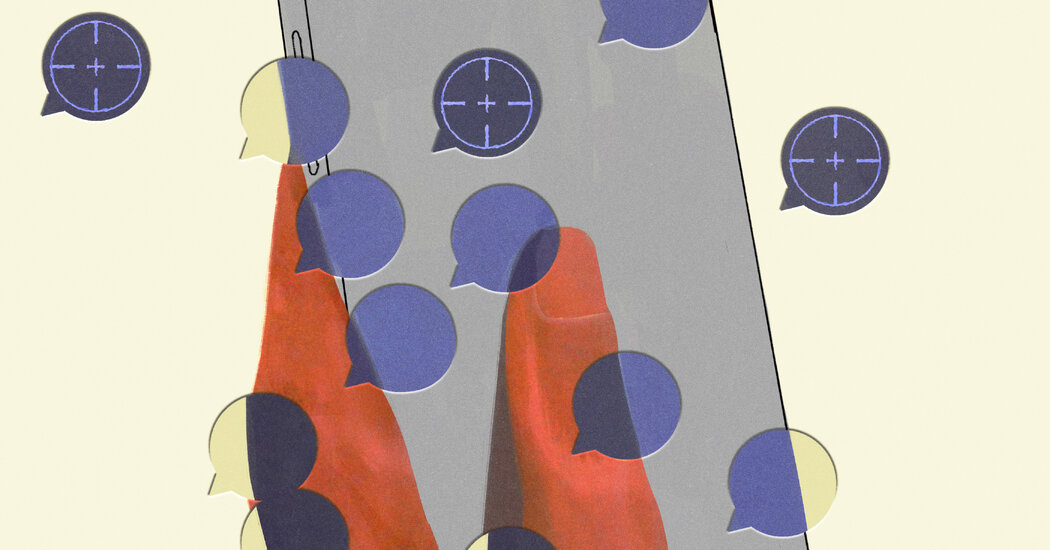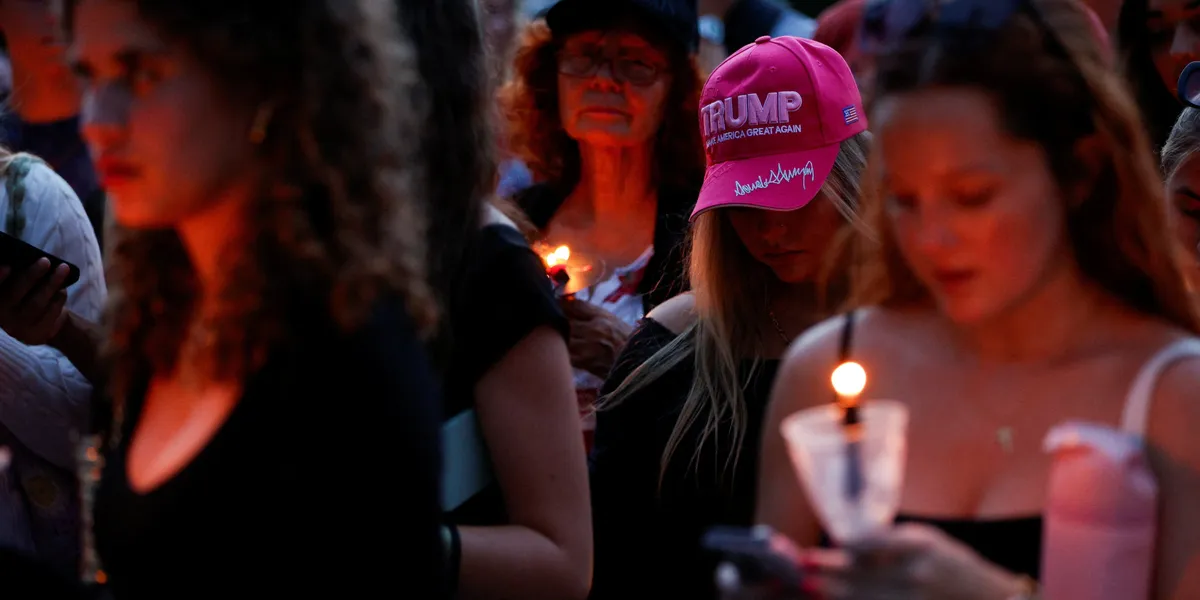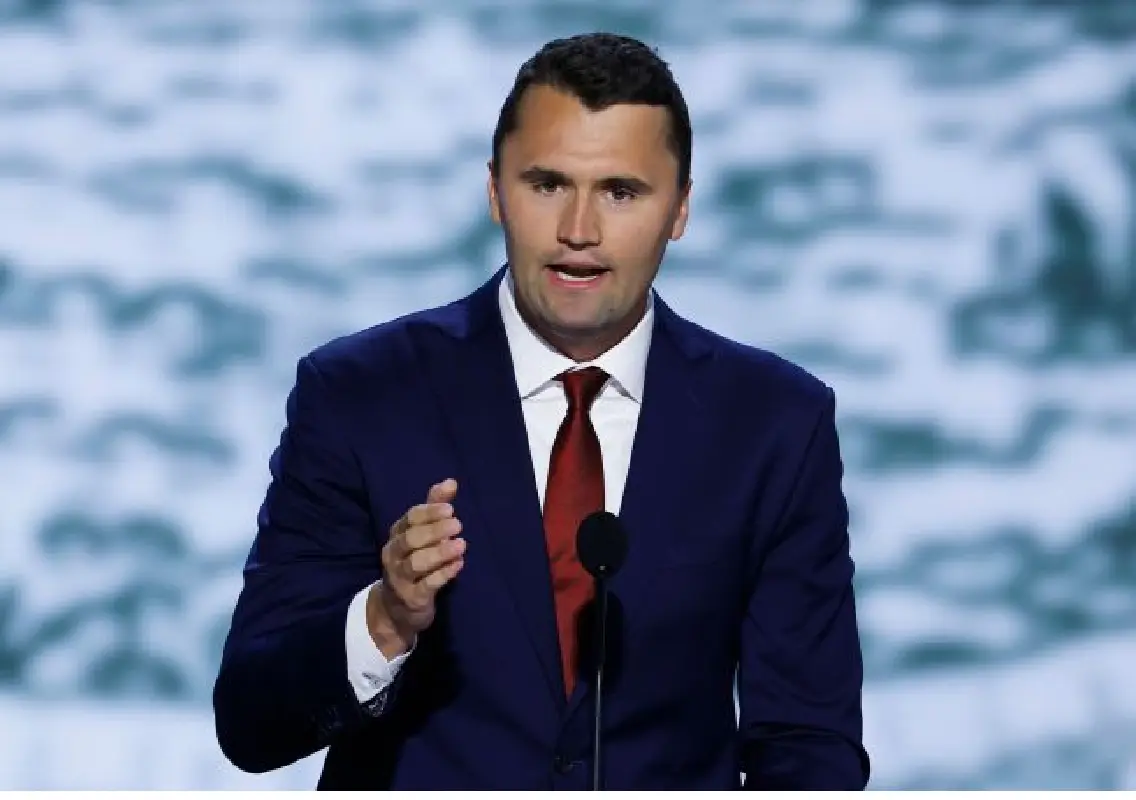
The most illuminating episode of political violence last week may have taken place not in Orem, Utah, where 22-year-old Tyler Robinson has been accused of murdering the right-wing commentator and youth organizer Charlie Kirk, but on the opposite side of the planet, in Nepal.
There, the governing Communist Party tried to impose a nationwide ban on 26 major social media platforms, provoking mass youth unrest sufficient not just to reverse the ban but to topple the entire government. Dozens were killed and more than 2,000 were injured in what is being called the “Gen Z protests,” but which amounts, I think, to a proper revolution. One day after protesters raging about the obnoxious wealth of “Nepo Kids” on social media first stormed the country’s Parliament and then set it ablaze, the prime minister resigned. By the end of the week, an interim prime minister had been selected via Discord.
This is not what the politics of the internet look like in America. But neither are those politics as placid as they once seemed, when a decade ago Silicon Valley was poised to succeed the financial class as the country’s natural and somewhat apolitical elite, conceiving and building out its own vision of the future mostly unrestrained by opposing forces. Back then — to paint a simplistic picture — the internet loomed like an unstoppable teleological force. Those raising objections looked like finger-wagging moralists or Luddites fighting foolishly against the future. The country had abandoned the fantasy that the internet would be a left-libertarian utopia, but Americans still tended to think the system was run by global corporate behemoths operating somewhat beyond democratic control.
Today? “I think we are ready, or very near ready,” my colleague Ezra Klein observed in January, “for true backlash.” The TikTok ban was passed into law last year with overwhelming bipartisan support — by votes of 352 to 65 in the House and 79 to 18 in the Senate — and was affirmed in January by the Supreme Court. The social psychologist Jonathan Haidt has become a rare kind of heroic modern evangelist by campaigning against smartphones. And almost every week now, it seems, we read about a new social malady for which to blame them: neuroticism and mental illness, political polarization and global populism, fertility decline and apocalypticism, nihilism and despair and the political violence it sporadically produces.
Some of these claims are more tenuous than others, and after a week of speculation and sleuthing, it’s still not quite clear what exactly the man accused of killing Kirk might have owed, beyond perhaps the memes engraved on the bullets, to the murky depths of online nihilism or extremism. But each claim, as it comes, adds to an emergent meta-narrative about the country’s apparent crackup: The internet did it, and continues to do it. “Social media is destroying our civilization,” the liberal economics commentator Noah Smith declared last week, even before the shooting. “We need a Great Firewall” — that is, an American equivalent of the quasi-totalitarian Chinese policy of state censorship.
On Friday, while announcing Robinson’s arrest and the end of the manhunt for Kirk’s shooter, Utah’s governor, Spencer Cox, took the time to deliver an extended homily concerning the pathologies of the internet. “Social media is a cancer on our society right now,” he declared. “And I would encourage people to log off, turn off, touch grass, hug a family member, go out and do good in your community.”
Over the weekend, Cox returned to the subject again and again — a Republican governor acknowledging left-wing aspects of the suspect’s politics, but choosing to emphasize instead the online world in which he understood Robinson to have really come of age. Pressed on his initial comparison of social media to cancer, Cox said that “probably isn’t a strong enough word,” given that social media had not only “played a direct role” in the Kirk assassination but had also contributed to “every single assassination and assassination attempt” in recent years. He called tech companies “conflict entrepreneurs” who were “hijacking our free will,” and reiterated, “I can’t emphasize enough the damage that social media and the internet is doing to all of us.”
There are echoes here of earlier moments of culture-war panic, and of the earnest Mormon moralism familiar from throwback figures like Mitt Romney. But liberals spent the weekend striking echoes, too. “We are all so divided, and that’s not by accident,” the Texas legislator James Talarico, a rising Democratic star and Senate hopeful, told MSNBC. “So many of the systems that we have — the social media platforms and the algorithms and the news networks — they tear us apart.” Speaking on “Meet the Press,” Pete Buttigieg sounded a similar note: “There is not a consistent pattern of left versus right among the shooters,” he said. “But there is a pattern where we see so many of these people are men, usually young men, who seem to spend more and more of their time in dark and twisted corners of the internet.”
In truth, the partisan pattern of recent violence isn’t that illegible. Most researchers agree that right-wing violence is more common in America, though some suggest that the left-wing share has been growing in recent years. On Tuesday, when Luigi Mangione appeared in a Manhattan court, where the two most serious charges against him were dropped, it was a reminder of the online culture often derided as the “Luigi left.” MAGA has its own version, of course, a seething anti-institutional faction flourishing online that, thanks to the porousness of the Republican Party, now boasts several avatars in positions of actual federal power, including at the F.B.I. and the Justice Department. As the immediate shock of the shooting gave way, many in the administration pledged an aggressive crackdown on the left, conducted in Kirk’s name and targeting not just the shooter and those who might have conspired with him but also a wide swath of liberal and progressive institutions and almost anyone they felt had posted the wrong way online.
But the country’s establishmentarian faction, its radical center, also appears increasingly uncomfortable with a hands-off approach to the online world — no longer merely lamenting the commodification of once-free virtual space or hand-wringing about exploitative algorithms on the big platforms but entertaining the proposition that the internet was a mistake, at least in large part, and considering what kind of politics and policy might be built around broad unease with it.
On this front Utah, appears to have been ahead of the curve. The state declared pornography a public-health crisis in 2016, back when doing so made it look like a prudish caricature. By the time it enacted an age-verification law in 2023, effectively forcing PornHub to withdraw from the state, the nationwide movement to limit pornography had already made Utah look like a kind of vanguard. Today, 24 other states have passed similar laws, which the Supreme Court affirmed by a 6-to-3 vote in June, and a similar backlash is now underway against online gambling, which is illegal in the country’s largest state, California. States are quickly banning smartphones in schools — probably a wise impulse, given that Walkmans and Game Boys were never allowed in classrooms, though the early research suggests the effects of these bans on emotional well-being and academic performance may be somewhat small. Other states are considering, or have passed, restrictions on children’s access to social media.
None of this amounts to a Great Firewall, or something like the social-media blackout imposed briefly, and disastrously, in Nepal. But it does represent one front in an intensifying fight for the internet, in which social media no longer looks like a tool of partisan persuasion but the political terrain itself.



